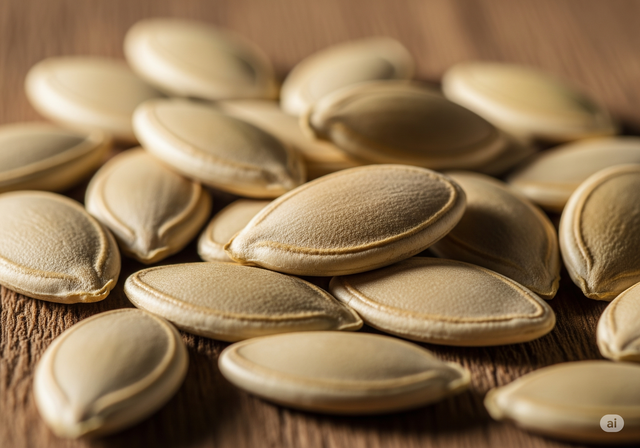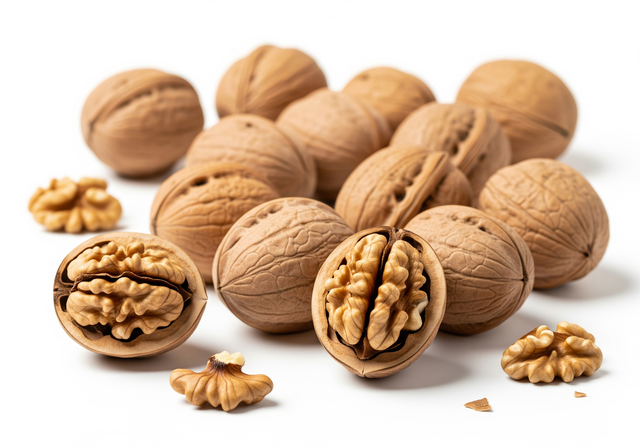Instead of relying solely on fruits and vegetables, many people are turning to supplementing their fiber intake from nuts, according to the health website Verywell Health .
Dr. Sohaib Imtiaz, a health expert in the US, pointed out that nuts are rich in fiber. In addition, these nuts contain many vitamins, minerals, and plant compounds that are beneficial for overall health.
Flax seeds
Flax seeds are one of the highest fiber-rich seeds, second only to chia seeds. Additionally, they are high in protein and alpha-linolenic acid (ALA), a plant-based omega-3 that improves cardiovascular health.
According to studies, ALA may help reduce inflammation and protect the cardiovascular system from the risk of chronic diseases.

Pumpkin seeds not only provide fiber but also contain plenty of calcium and magnesium.
Photo: AI
Pumpkin seeds
Pumpkin seeds not only provide fiber but also contain plenty of calcium and magnesium. These are two important minerals for bone health and many other bodily functions. They help maintain stable blood pressure, improve sleep, and boost immunity.
Sesame seeds
Sesame seeds are a rich source of B vitamins, especially B1, B3, and B6. These vitamins play essential roles in metabolism, energy production, and maintaining nervous system health.
However, it's important to note that sesame seeds can cause allergies in some people, so you should use them with caution.
Almonds are rich in fiber.
A 28-gram serving of almonds provides nearly half of the body's daily vitamin E requirement. This is an important antioxidant that helps boost the immune system and protect cells from damage caused by free radicals.
In addition, almonds are rich in fiber, which helps improve digestion and nourish beneficial bacteria in the gut.
Chestnut
Chestnuts contain high levels of vitamins B1 (thiamine) and B6, which play an important role in supporting the stable functioning of the nervous system and helping the body convert food into energy more efficiently.
In addition, chestnuts are much lower in calories than many other nuts, with only about 159 calories per 28 grams.

Adding walnuts to your diet may help lower levels of bad cholesterol in the blood.
Photo: AI
Walnut
Walnuts provide many essential minerals such as copper, magnesium, calcium, and potassium. These are necessary for bone health, blood pressure, and muscle health.
According to research, adding walnuts to your diet may help lower levels of bad cholesterol in the blood, thereby supporting cardiovascular health.
Peanut
Despite having significantly fewer calories than many other nuts, peanuts still offer considerable nutritional value.
They contain resveratrol, phenolic acids, flavonoids, and phytosterols. These are active compounds that can help lower cholesterol, thereby reducing the risk of cardiovascular disease.
Source: https://thanhnien.vn/cac-loai-hat-giau-chat-xo-185250618230036707.htm















































































































Comment (0)